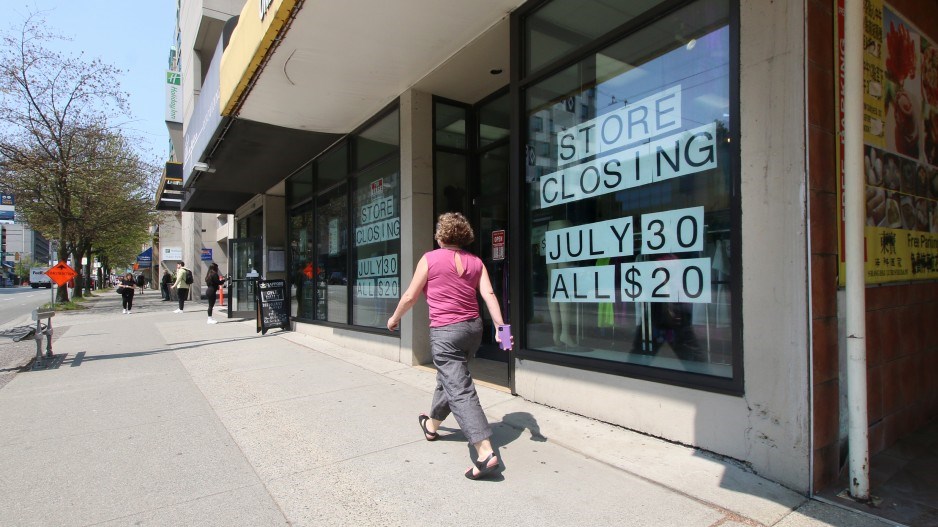They are facing difficult market conditions in a slowing economy and escalating costs from every level of government. So, it’s not surprising that more Metro Vancouver businesses say they can’t afford to risk taking on more debt, even though they need the financing to prosper and grow.
The Canadian Survey of Business Conditions (CSBC) numbers released today (June 22) by the Greater Vancouver Board of Trade (GVBOT) tell the tale of a sector under increasing financial stress. For example, the number of Metro Vancouver businesses that cited uncertainty in future sales as the reason they cannot take on more debt more than doubled to 42 per cent in the current quarter covered by the CSBC survey compared with 17 per cent in the previous quarter.
The GVBOT added that data illustrating the rising financial pressures local companies are shouldering follows the recent release of a GVBOT report highlighting the $6.5 billion in additional government-imposed costs those businesses will face from now until 2024.
Businesses all over the province and the rest of the country are also grappling with weakening demand as the global economy slows in 2023.
In its most recent outlook for Canadian local and regional governments, Fitch Ratings “anticipates deterioration based on macroeconomic conditions unfolding in 2023 and a range of related risks, including rising wage demands, service delivery pressures, especially in health care, rising borrowing rates and side effects of the housing market correction.”
It also predicts growth in the Canadian economy to slow to 0.6 per cent in 2023 from 2022’s 3.5 per cent.
For Metro Vancouver and all other business hubs that rely on the reliable flow of goods through the Asia-Pacific Gateway, the current impasse in contract negotiations between the International Longshore and Warehouse Union Canada (ILWU) and the BC Maritime Employers Association (BCMEA) adds another layer of uncertainty to their business prospects.
“The potential for heightened supply chain challenges as a result of labour negotiations with port workers in B.C. risks exacerbating the disruptions brought on by the COVID-19 pandemic, heat domes and flooding,” Bridgitte Anderson, GVBOT’s president and CEO, said in a press release. “Businesses need stable supply chains to reach their full potential, particularly for those looking to reach international markets.”
The cooling-off period instituted after the federal conciliation process between the ILWU and the BCMEA expired on June 20. .
Other challenges cited by Metro Vancouver businesses in the CSBC survey included rising inflation; higher costs of inputs, real estate and commercial leases; and recruiting and retaining skilled employees.
Respondents are also bracing for what they anticipate will be increases in operating expenses and decreases in operating income and profitability over the next three months.
The CSBC was created in 2020 by Statistics Canada in partnership with the Canadian Chamber of Commerce to provide timely data on business conditions in Canada.
@timothyrenshaw




